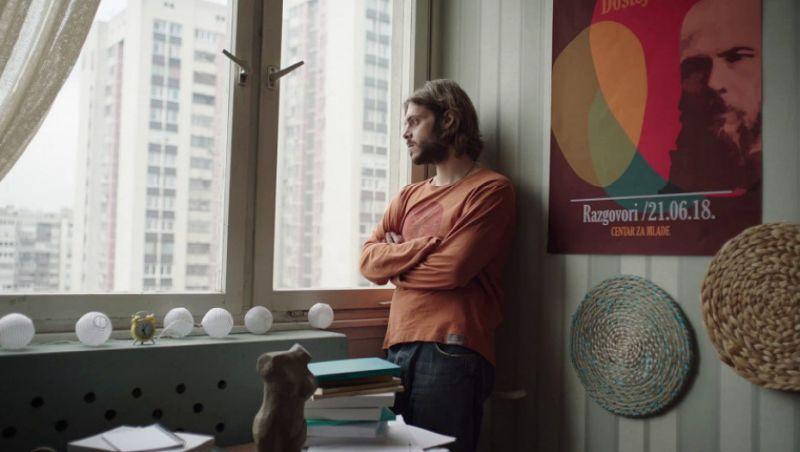 Fillmofil.ba proudly represents the works of young critics done in program Talents Sarajevo of 23rd Sarajevo Film Festival
Fillmofil.ba proudly represents the works of young critics done in program Talents Sarajevo of 23rd Sarajevo Film Festival
Written by Mónika Bajnóczi
In a day and age which uses more emojis than actual words, The Perfect Order examines a young adult’s alienation and the all so familiar feeling of being lonely even when surrounded by people.
Georgian cinema has a strong presence at last year’s Sarajevo Film Festival. The competition line-up includes titles like Scary Mother, Hostages, and City of the Sun, and there are features, animations, and works in progress in other sections of the festival, too. The Perfect Order, the story of Mariam trying to change her pretentious day to day routine, premiered in the Short Film Competition Programme.
Mariam is an actress and works in a café where customers can order not only drinks and snacks, but any companion they wish. As a young adult with no father in sight, an often absent to work mother and a brother mostly not paying any attention to Mariam, she longs to have connections – even if they are only for half an hour or so. She’s supposed to provide company for lonely people, but it works the other way around too. Apparently, she doesn’t have friends either, until one day a guy enters the café, solely for having a nice meal, but he ends up changing Mariam’s life.
Directors Anna Sarukhanova and Katalina Bakradze have created a both visually and narratively interesting atmosphere to contemplate about loneliness. The plot takes place in a Wes Anderson postcard-like Georgian city, the café is perfectly designed with cute little cups and has prepared costumes for every role, but what’s pleasing to the eye at the surface feels empty on the inside. The artificial aesthetical setting helps the clients feel relaxed, experience perfection, but at the end of the day it's all just part of a play. On one occasion, when Mariam gives her sincere opinion, the unsatisfied customer explicitly tells her that she came here for support, not for being criticized. Even the cinematography emphasises the intension to keep both physical and emotional distance from reality as we frequently see the characters from afar or through windows.
Mariam smiles from her heart for the first time when she's participating in a protest alongside a bunch of environmental activists. They are knee deep in mud – probably freezing too since it’s late at night – and planting trees. In this sequence, Mariam finally experiences the feeling of belonging to a community. These people and their devotion to nature are in contrast with her everyday life filled with phony sentiments. At this point, the deconstruction of perfection – regarding the scenery and her appearance too – leads to honest emotions and interactions. Eventually this makes her realize the absurdity of her job at the café and helps her to take the first step towards having meaningful relationships.






















